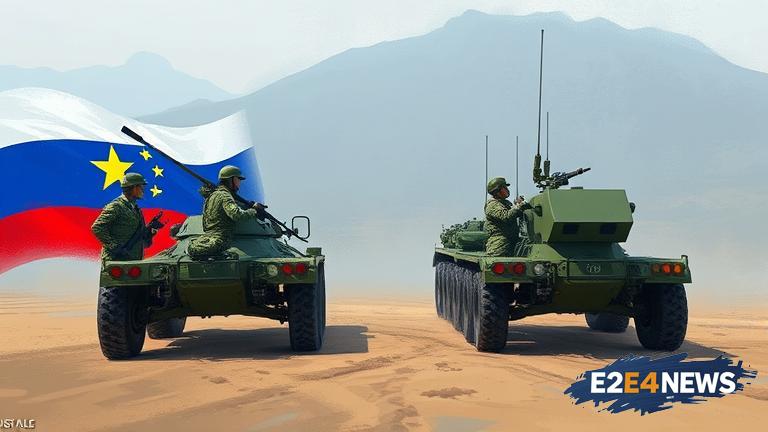In a significant display of their growing partnership, China and Russia have commenced a joint military exercise, aimed at enhancing their strategic cooperation and interoperability. The exercise, which is being held in the Russian Far East, involves a range of military units and equipment from both countries. This joint endeavor marks a new milestone in the China-Russia relationship, which has been steadily strengthening over the past few years. The exercise is focused on counter-terrorism operations, with a particular emphasis on joint command and control, as well as coordination between different branches of the military. The Chinese and Russian militaries have been working closely together to develop a comprehensive framework for their joint operations, which includes the sharing of intelligence, logistics, and communications. The exercise also highlights the growing importance of the China-Russia alliance in the context of global geopolitics. As the world becomes increasingly multipolar, the partnership between China and Russia is seen as a key factor in shaping the future of international relations. The joint exercise is also significant in terms of its implications for regional security, particularly in the Asia-Pacific region. The exercise demonstrates the ability of China and Russia to work together to address common security challenges, such as terrorism and piracy. Furthermore, the exercise showcases the military capabilities of both countries, including their advanced weaponry and equipment. The Chinese military has been rapidly modernizing in recent years, with a focus on developing its naval and air power capabilities. Russia, on the other hand, has been investing heavily in its military modernization program, with a particular emphasis on developing its nuclear deterrent. The joint exercise also highlights the growing economic cooperation between China and Russia, which has been driven by their shared interests in energy and trade. The two countries have been working closely together to develop new energy pipelines and transportation corridors, which will help to strengthen their economic ties. In addition, the exercise demonstrates the commitment of China and Russia to promoting regional stability and security, through their participation in international organizations such as the Shanghai Cooperation Organization. The joint exercise is also seen as a response to the growing military presence of the United States and its allies in the Asia-Pacific region. China and Russia have been critical of the US military presence in the region, which they see as a threat to their national security interests. The exercise is therefore a demonstration of their ability to work together to counterbalance the influence of the US and its allies. Overall, the joint military exercise between China and Russia marks an important milestone in their growing alliance, and highlights their commitment to promoting regional stability and security. The exercise also demonstrates the military capabilities of both countries, and showcases their ability to work together to address common security challenges. As the world becomes increasingly complex and multipolar, the partnership between China and Russia is likely to play an increasingly important role in shaping the future of international relations. The joint exercise is a significant development in the context of global geopolitics, and highlights the need for greater cooperation and dialogue between major powers to address common security challenges. In conclusion, the joint military exercise between China and Russia is a significant development that highlights the growing alliance between the two countries, and demonstrates their commitment to promoting regional stability and security. The exercise also showcases the military capabilities of both countries, and highlights their ability to work together to address common security challenges. As the world becomes increasingly multipolar, the partnership between China and Russia is likely to play an increasingly important role in shaping the future of international relations.





